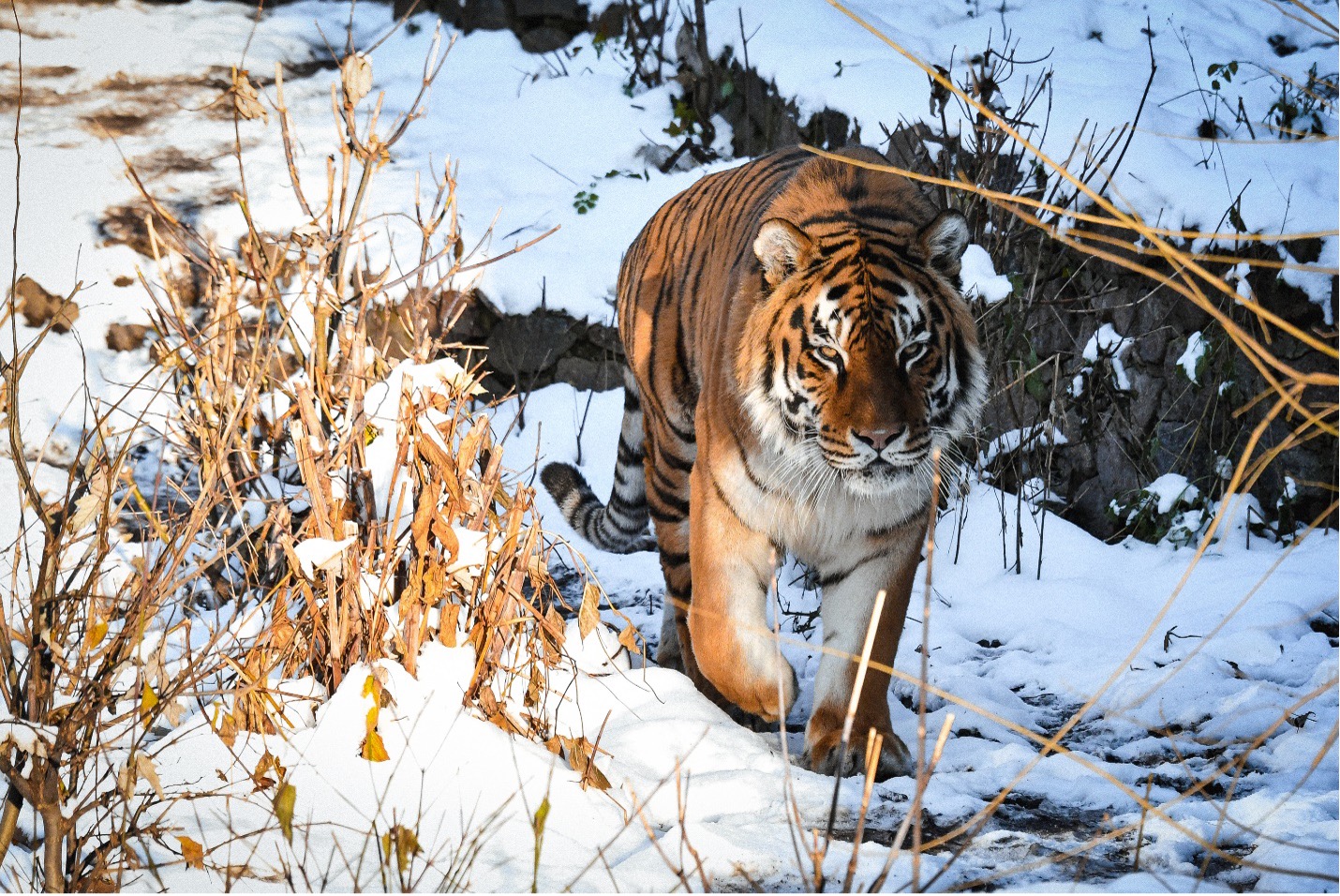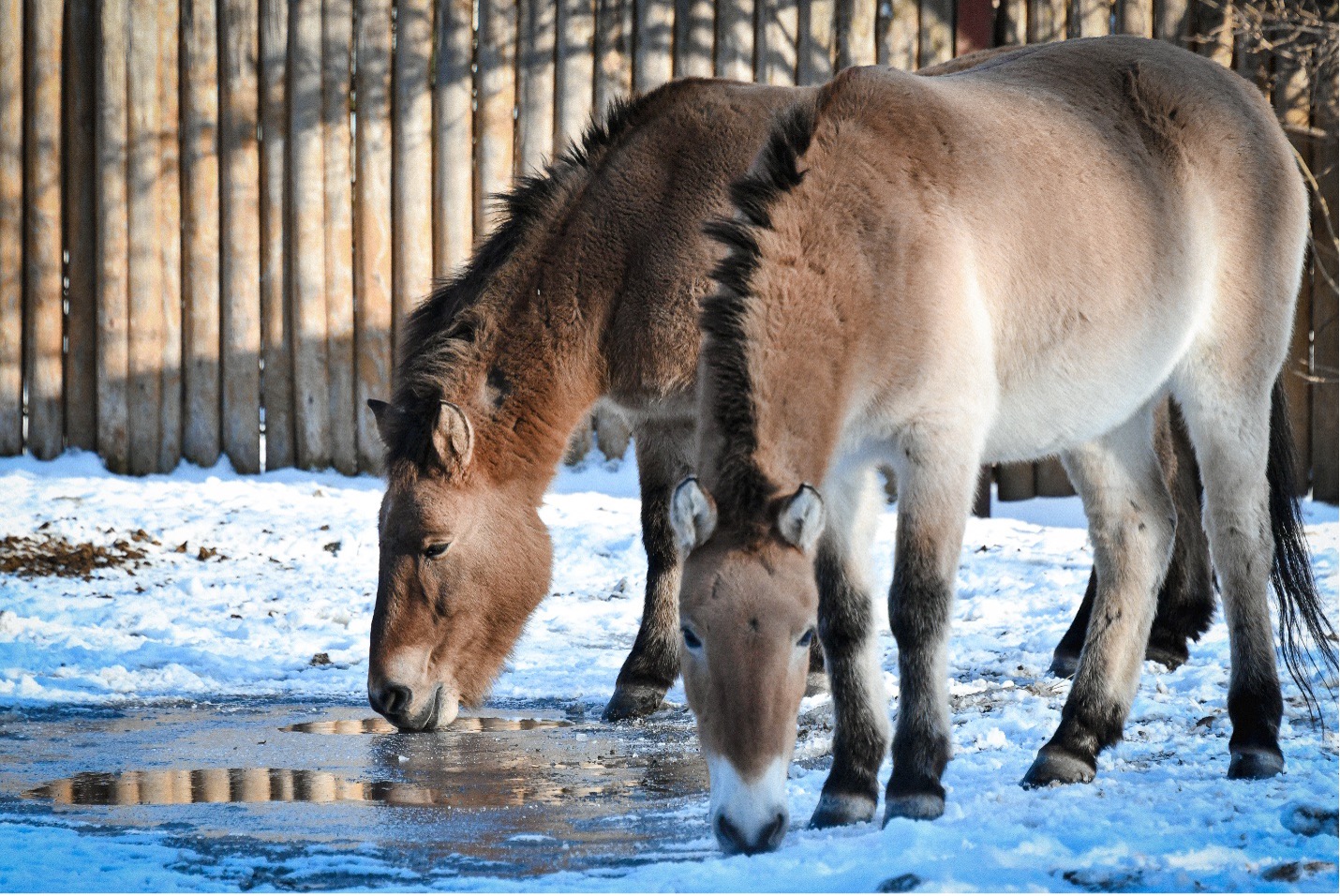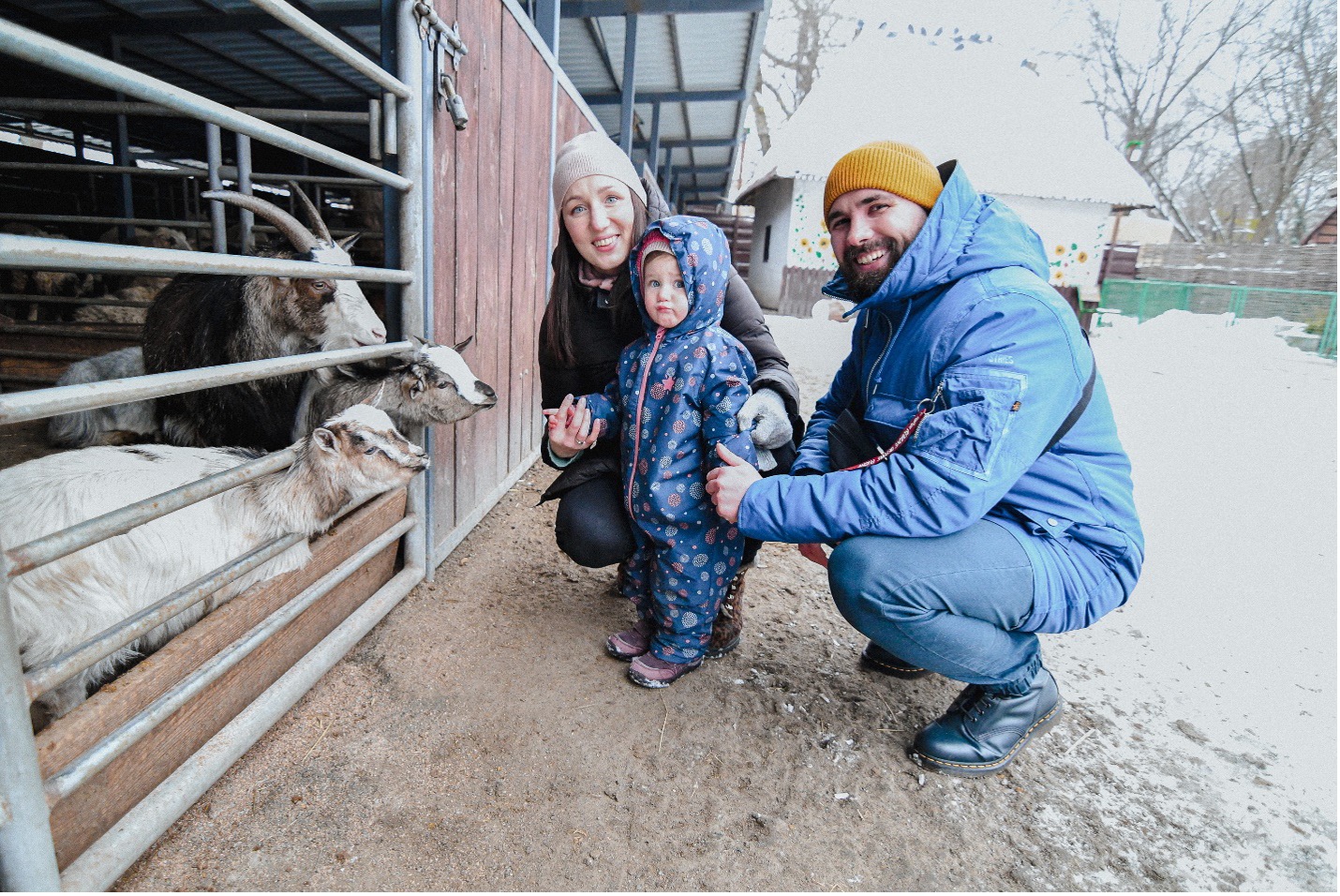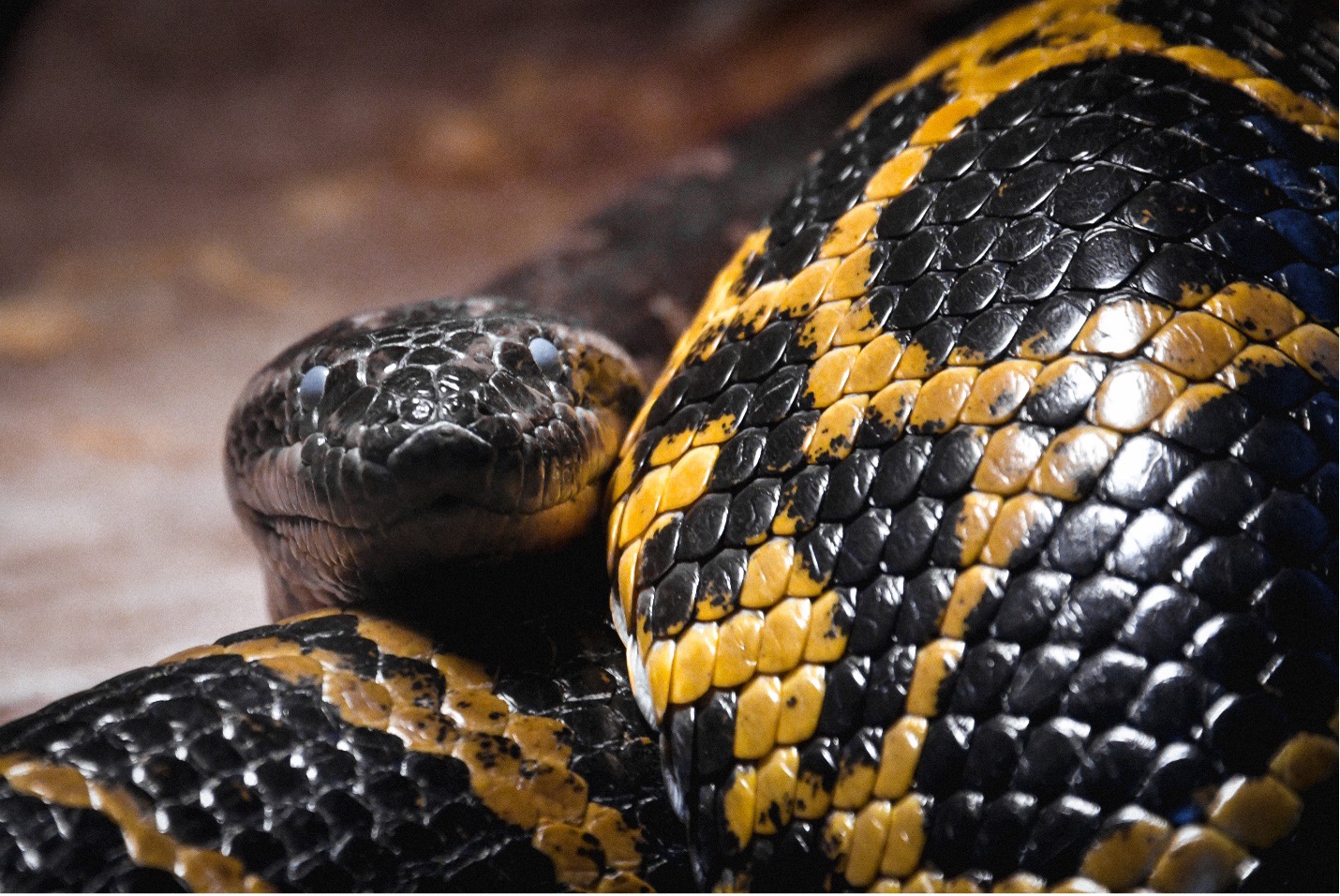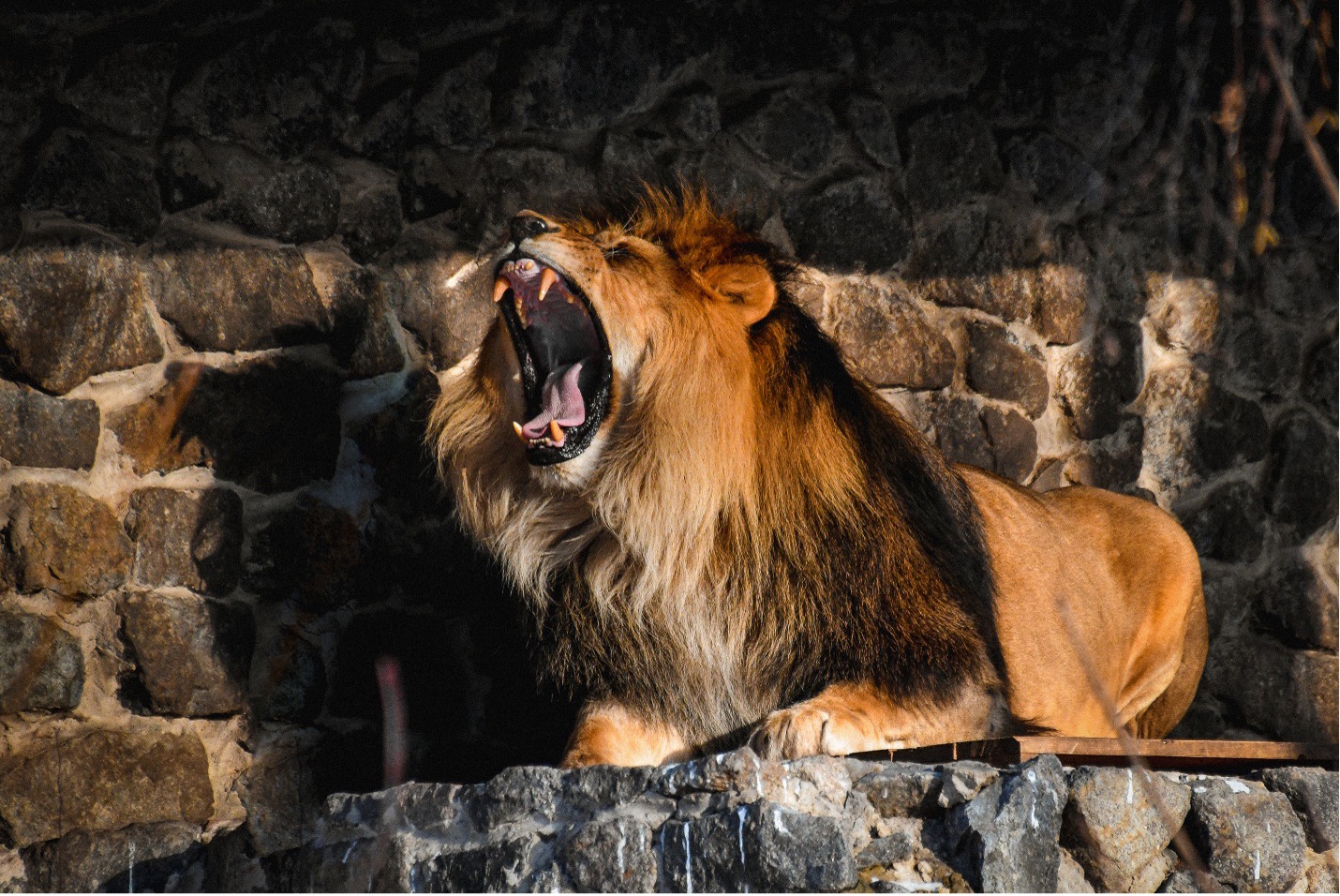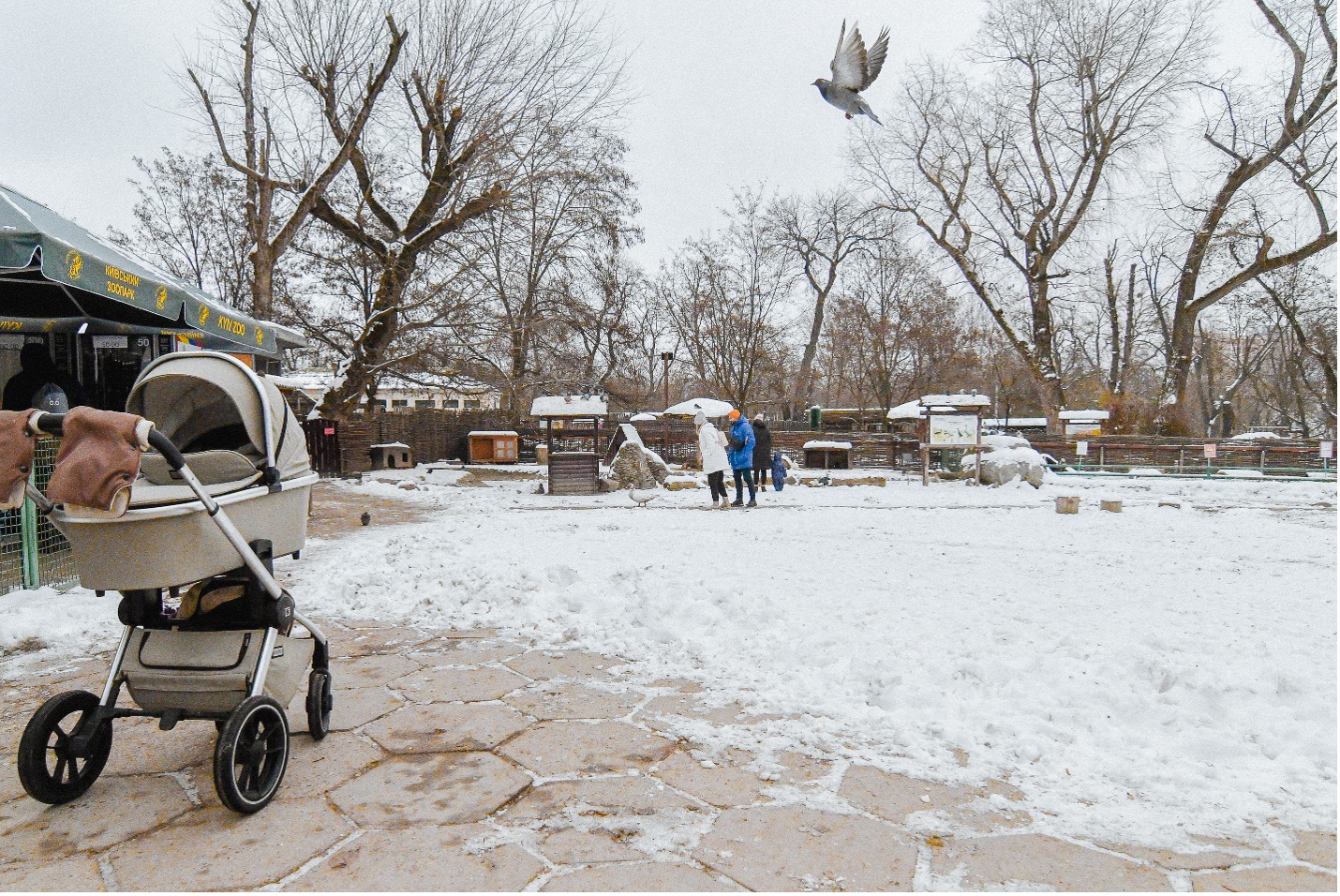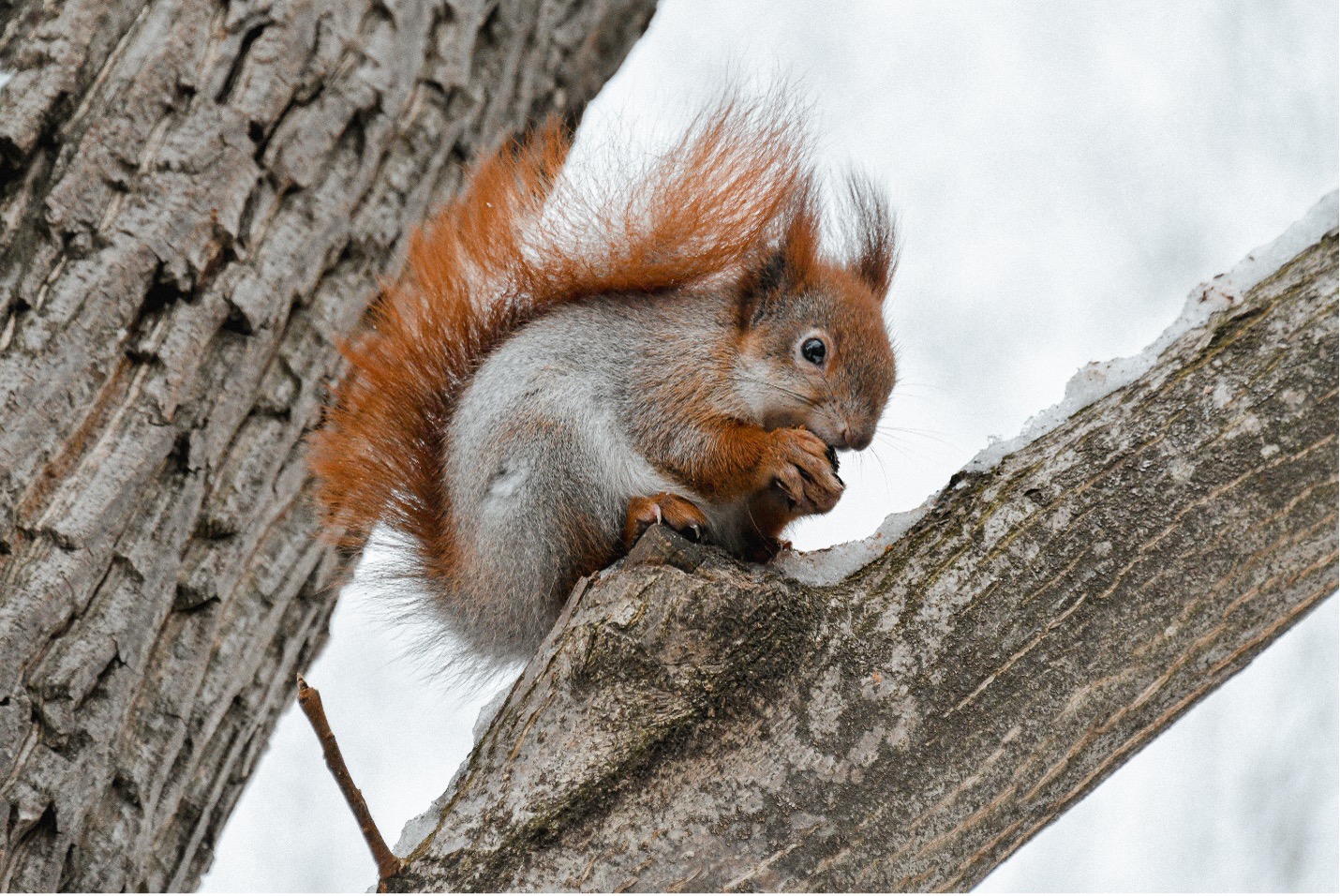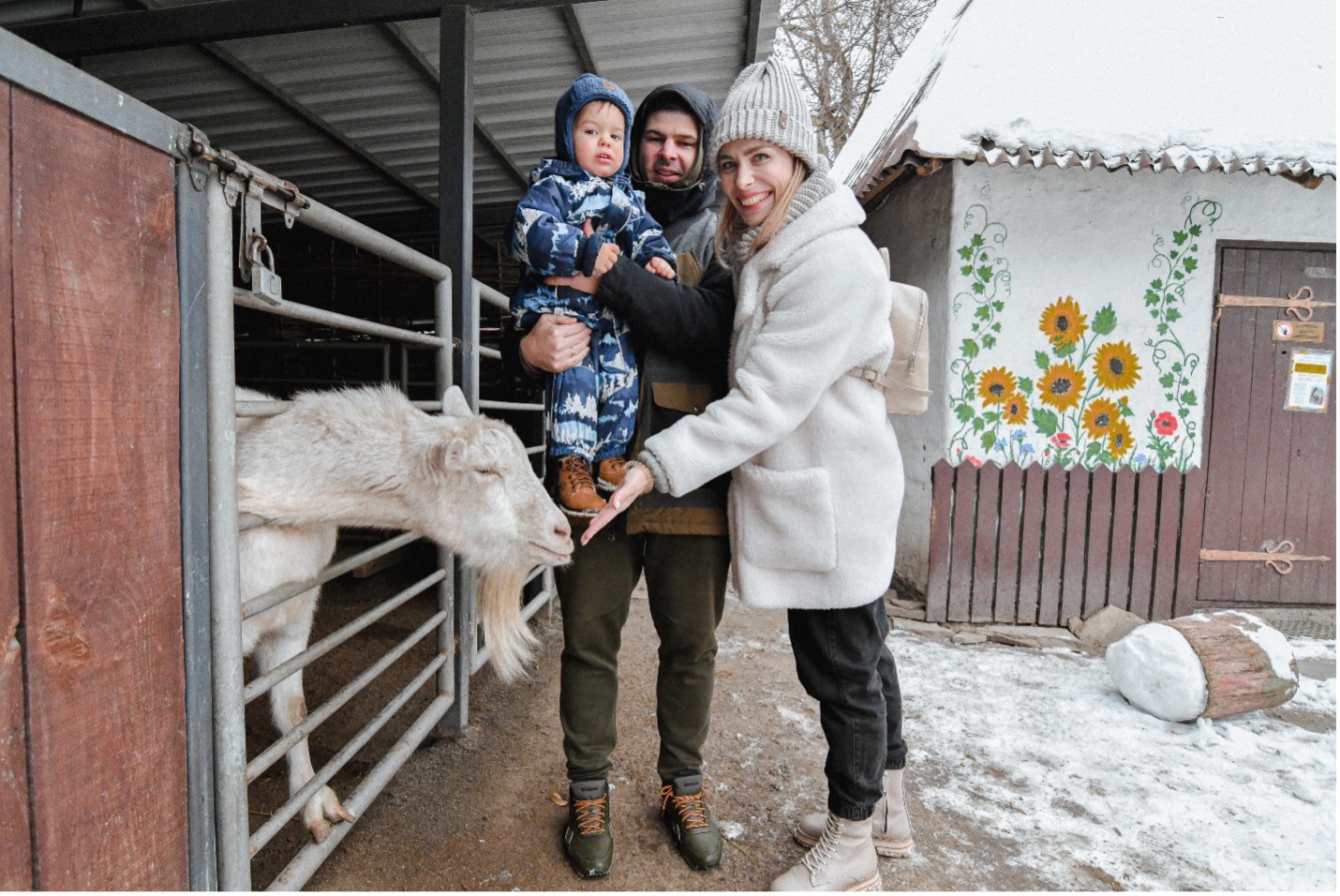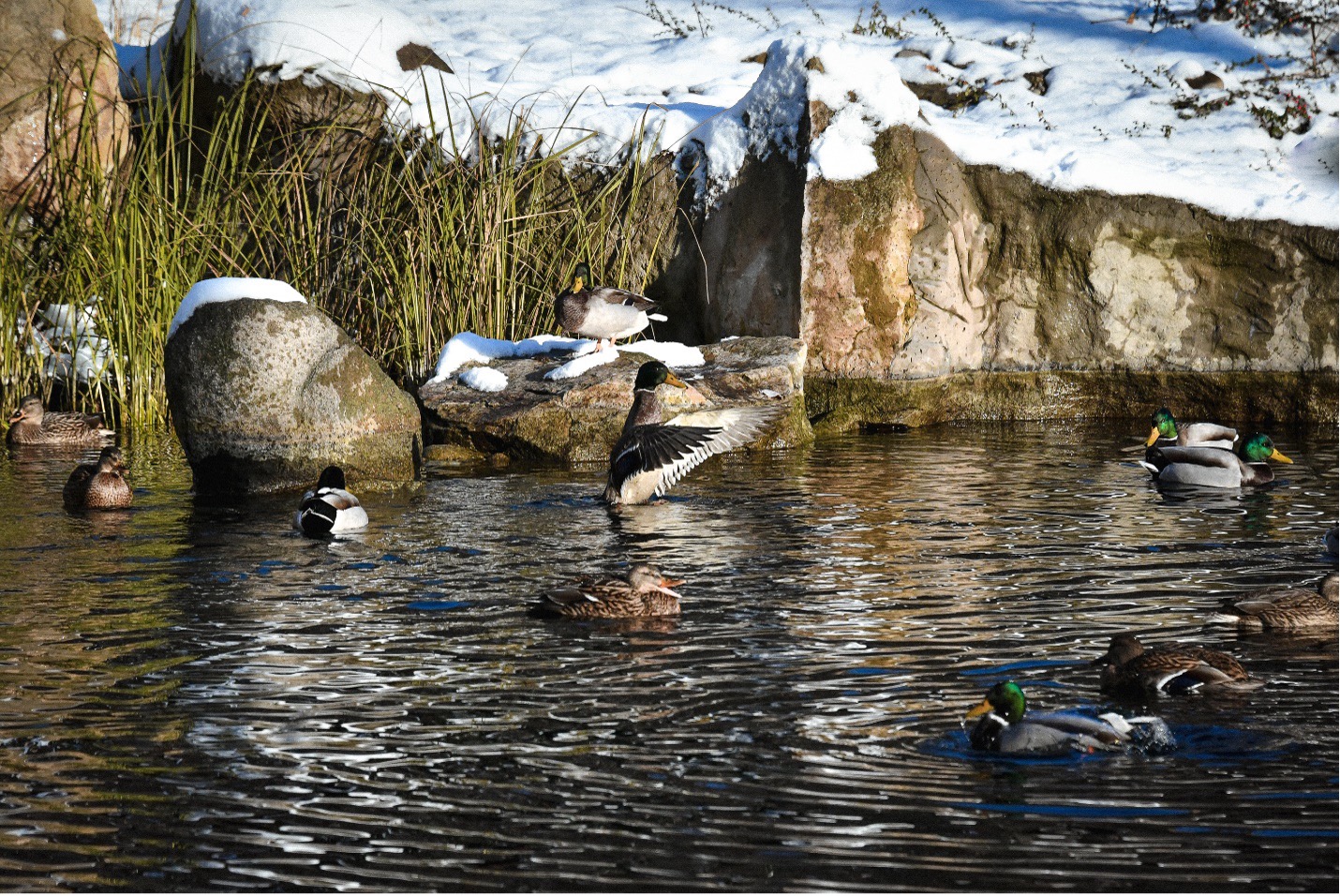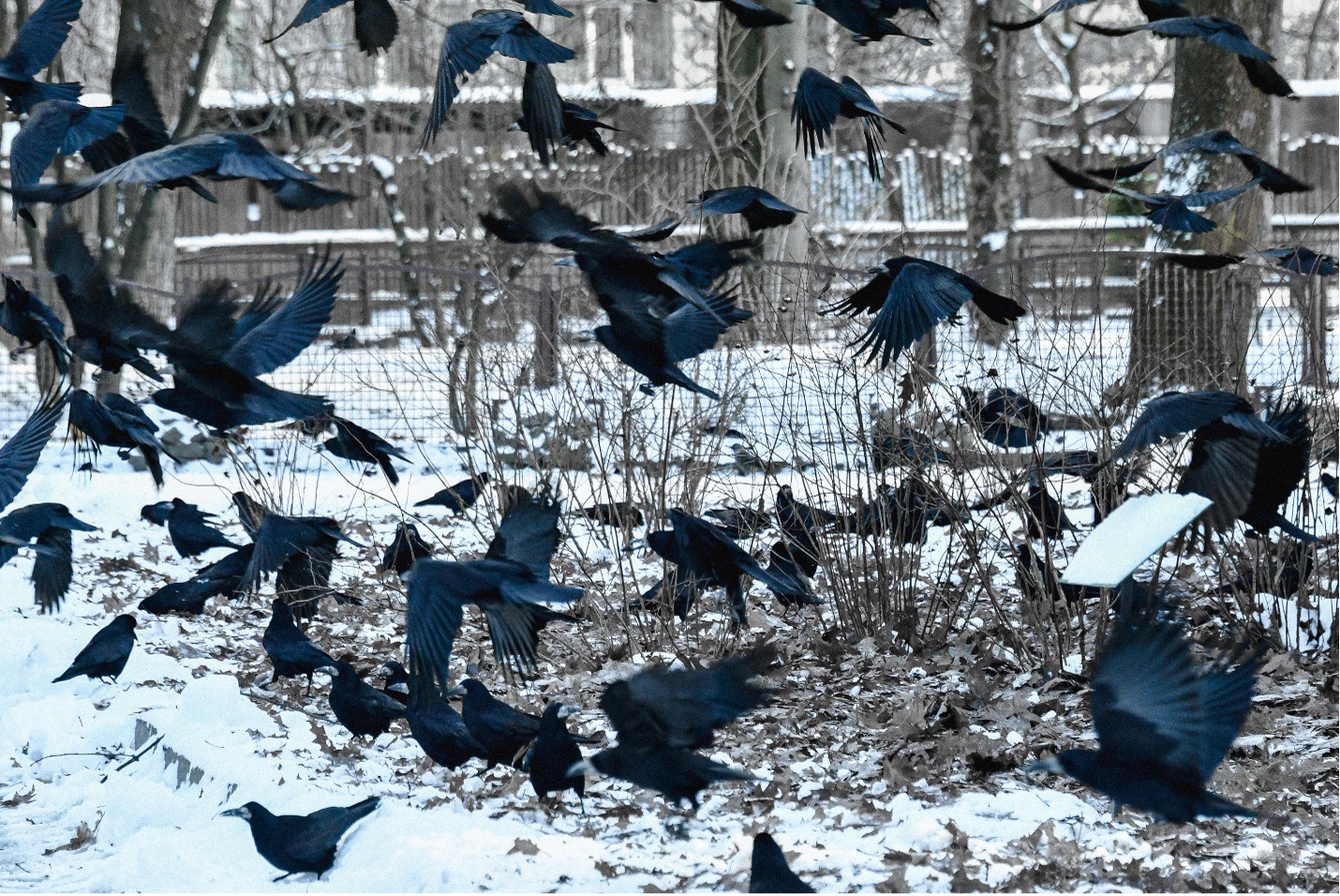It was a cold winter Saturday and Kyiv City Zoo was pretty empty and quiet. The real action was in the petting zoo.
The Bactrian Camel was out and about and trying to chew the bark off a tree in its pen. The quack level at the duck pond was moderate. The bison was yanking hay from a bale and strewing it on the snow. The lions were on the prowl and waiting for what turned out to be beef bones. A condor aired its feathers. But most animal exhibits were like the python – probably in a warmed enclosure, just sitting there.
JOIN US ON TELEGRAM
Follow our coverage of the war on the @Kyivpost_official.
Still, even with blackouts, missile warnings, curtailed public transport, and spotty heating in most people’s apartments, in the petting zoo, you can find young families feeding snacks to the sheep and goats, tossing crumbs to the pigeons, and getting outside the house because, frankly, being cooped up in an apartment with a two-year-old is only possible for so long.
"We get outside every day, the weather doesn’t matter, the main thing is to move around and stretch out legs. Our little guy can’t look at walls all the time, he has to get out," said Daryna Korchyna*. "The war doesn’t change that."
Korchyna was feeding ducks with her mother Iryna and Matvei, age three. The Kyiv Zoo has several ponds that wild ducks sometimes winter at, and from time to time they fly into the petting zoo to look for food.
Matvei appeared more interesting in chasing ducks than feeding them, but he was in winter boots so the Mallards had no trouble evading him.
Matvei fell down a couple of times but it wasn’t a big deal, he just got back up and kept going after the ducks.
"We know there could be an air raid siren at any time, there’s not a lot you can do, you just need to know where the closest shelter is and be ready to go there," Korchyna said. "You try not to think about it and just have a normal day outside."
Korchyna said she and her children were from the southern Ukrainian city of Mykolaiv, but left in March because of the problems getting safe water and finding work there. She said she was glad the Armed Forces of Ukraine captured Kherson last month and put an end to Russian shelling of Mykolaiv, but, for the winter they probably were going to stay in Kyiv because, she added, the capital has more parks and green areas where a family can get outside.
A father with a son and daughter said they moved to Kyiv in 2014 to get away from fighting in Donetsk, and that now they live near the Akademicheska metro station, that both parents work and that both kids are going to school.
The war with its blackouts, sky-high prices for food and fuel, and constant fear of missile attack is bad, he said, but living a year and half with the threat of Covid, and being unemployed at the time, was in some ways worse.
"At least now we have money coming into the family, and of course the kids are older," he said. "We like living in Kyiv, it’s comfortable here, it’s a good place for families." He requested he and his children not be identified.
Artem and Taisa Baladin were by the goat enclosure, trying to convince their daughter Alysa it was safe to feed an either quite hungry or extremely pushy white Billy goat a carrot. Alysa, less than a quarter the size of the goat, appeared to a Kyiv Post reporter to be a little dubious about the idea.
"Yes, of course, we understand there could be a missile raid at any moment, everyone understands that it could happen," Taisa said. "But life goes on…you can’t stop leaving because of something terrible that might or might not happen, that you have no control over."
"Going to the zoo is a normal thing to do with children, today is a weekend and a family should do something together on the weekend if it can," Artem said. "Children are always growing and you can’t just lock them up because you are scared."
Baladin said he is employed in IT and that work is fairly steady but sometimes difficult, because power outages stop his programming cold. The risk of data loss is not that bad, he said, because Ukrainian programmers long ago learned how to default save everything they are doing onto the cloud, and often. Physical risk from a Russian missile strike, he added, is real but there really is nothing a person can do but live with it.
"It’s not a matter of winning the war or fighting the Russians, we support the army and we are patriots, but we are outside in the fresh air…not to make some brave statement…(but) because it’s a normal thing for us to do. Today, we had the chance to go to the zoo so we did," Baladin said.
Alysa wound up never feeding the goat. Daryna Naumenko and her daughter Mariya and son Slavik, aged two, had left the petting zoo and were watching a Siberian Tiger, named "Malysh" by keepers, pace inside his enclosure. The pen is reasonably spacious and the big cat appeared well-fed and energetic. Slavik is not a great walker yet, so he watched from his mother’s arms.
"See the kitty, see how big he is?" Naumenko asked.
Slavik appeared more interested in a murder of wild crows that had taken over an open area next to the raptor exhibits to perch on park benches, fences and a hippo statue. When an adult pedestrian walked at least 30 of the birds exploded into the air, cackling and cawing and probably making the most noise heard in the Kyiv City Zoo the entire afternoon. After that it was getting dark, and the zoo grounds became quiet again, except for the sound of a few families walking with their small children.
NOTE: Kyiv Post asked zoo management for comment, but they declined. The Korchynas requested a pseudonym be used for their last name.


